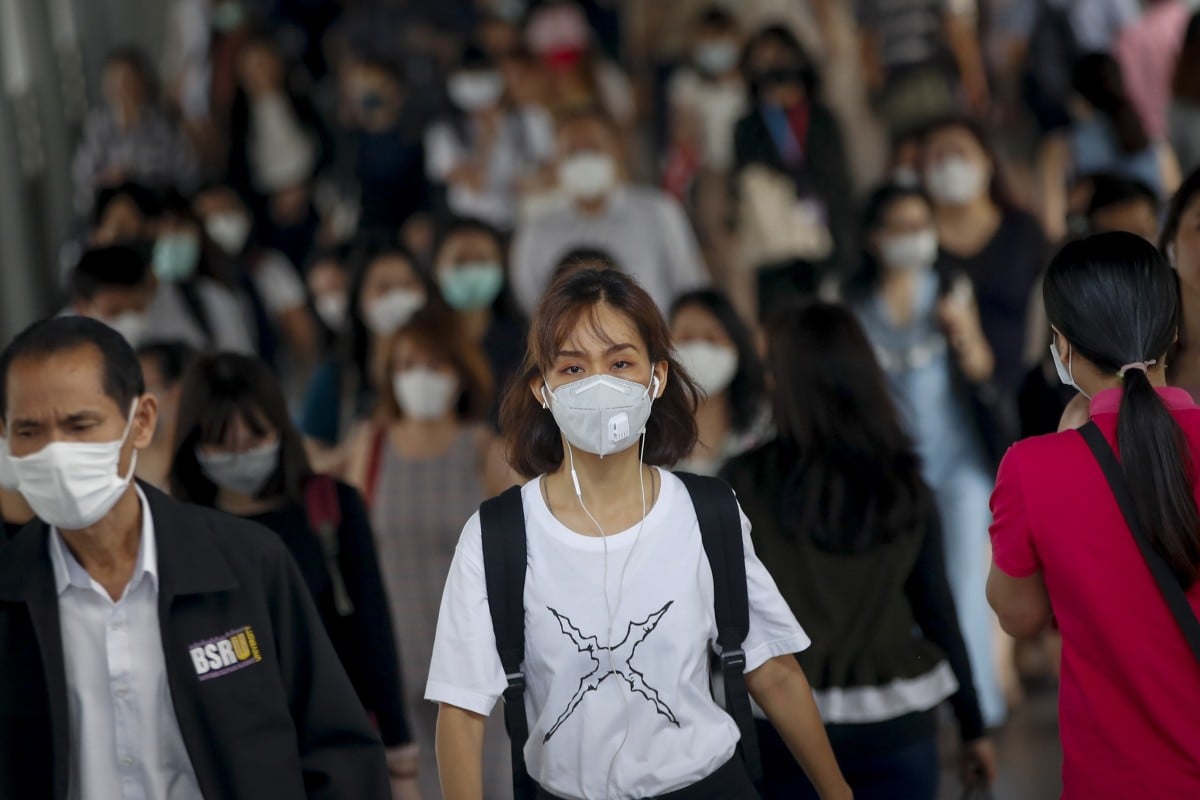
The move is a reversal of the UN agency's previous decision, due to fears some countries may not be prepared to tackle the coronavirus
 Commuters wearing masks exit the Bangkok Mass Transit System in Thailand’s capital on Thursday.
Commuters wearing masks exit the Bangkok Mass Transit System in Thailand’s capital on Thursday.The coronavirus was declared a global public health emergency by the World Health Organisation (WHO) on Thursday, citing the potential of the virus to spread to countries not prepared to deal with the contagion.
Declaring the public health emergency of international concern (PHEIC), WHO director general Tedros Adhanom Ghebreyesus emphasised multiple times during a press conference in Geneva that the move was not “a vote of no confidence” in China’s ability to control the outbreak. The latest PHEIC is only the WHO’s sixth since the UN agency was given the power to make such declarations in 2005.
A timeline of the coronavirus outbreak
“Our greatest concern is the potential for the virus to spread to countries with weaker health systems and which are ill prepared to deal with it,” Tedros said.
“The vast majority of cases outside of China have a travel history to Wuhan or contact with someone with a travel history to Wuhan. We don’t know what sort of damage this virus could do if it were to spread to a country with a weaker health system.”
Alongside his declaration of a global public health emergency, the WHO chief also outlined a number of recommendations to countries as they respond to the contagion’s spread, including accelerating the development of a vaccine, reviewing preparedness plans, combating the spread of misinformation, and sharing data with the United Nations body.
But WHO officials also warned that drastic restrictions in travel and trade were not necessary, and said they opposed any move to close borders with China or restrict Chinese travellers’ access. Though they did not mention Russia by name, their remarks came soon after Moscow announced it was closing sections of the Russia-China border and suspending visas for Chinese visitors.
“Some countries have taken questionable measures concerning travellers,” said Didier Houssin, chair of the WHO’s emergency committee. Those measures, he said, “should not constitute an example to follow”.
With the declaration of a PHEIC, the WHO will have greater authority to question such actions, Houssin said: “Why did you take this decision? What is the science supporting this decision? Could you reconsider this decision?”
The WHO’s alert “is going to have a profound affect on all areas of the tourism industry globally,” she added. “People will initially panic and think that all travel should stop because typically people don’t get as informed as they could be on the topic.”
Amid the outbreak, numerous governments are advising against all non-essential travel to China, while countries including the US and Japan have chartered flights to Wuhan to extract citizens living inside the locked-down city of about 11 million people. Several international air carriers have scaled back or suspended flights to the country amid dwindling demand.
Wuhan virus: Carrie Lam declares highest state of emergency response
Tedros characterised travel restrictions as countries punishing China, which he said deserved only respect for its handling of the outbreak. “Where respect is due, then you don’t punish,” he said. “Meaning if anyone is thinking about taking measures it’s going to be wrong.”
In a statement released following the WHO’s declaration, Chinese foreign ministry spokeswoman Hua Chunying said Beijing would continue to work with the agency and other countries “to safeguard global and regional public health security.”
“We completely have the confidence and capability to win this fight against the epidemic,” she said.
Of critical concern to health authorities is the small but rising number of human-to-human transmissions outside China, where a person with no recent travel to the country contracts the disease from another individual.
To date, there have been eight confirmed instances of human-to-human transmission outside of China, said Tedros. Beyond the US and Germany, such cases have also been confirmed in Vietnam and Japan.
Wuhan virus: Africans in China lockdown see no escape
“Although these numbers are still relatively small compared to the numbers of cases in China, we must all act together now to limit further spread,” he said.
The government’s response has elicited both praise – most vocally from WHO officials – and also criticism, particularly over a perception that regional officials initially downplayed the severity of the outbreak.